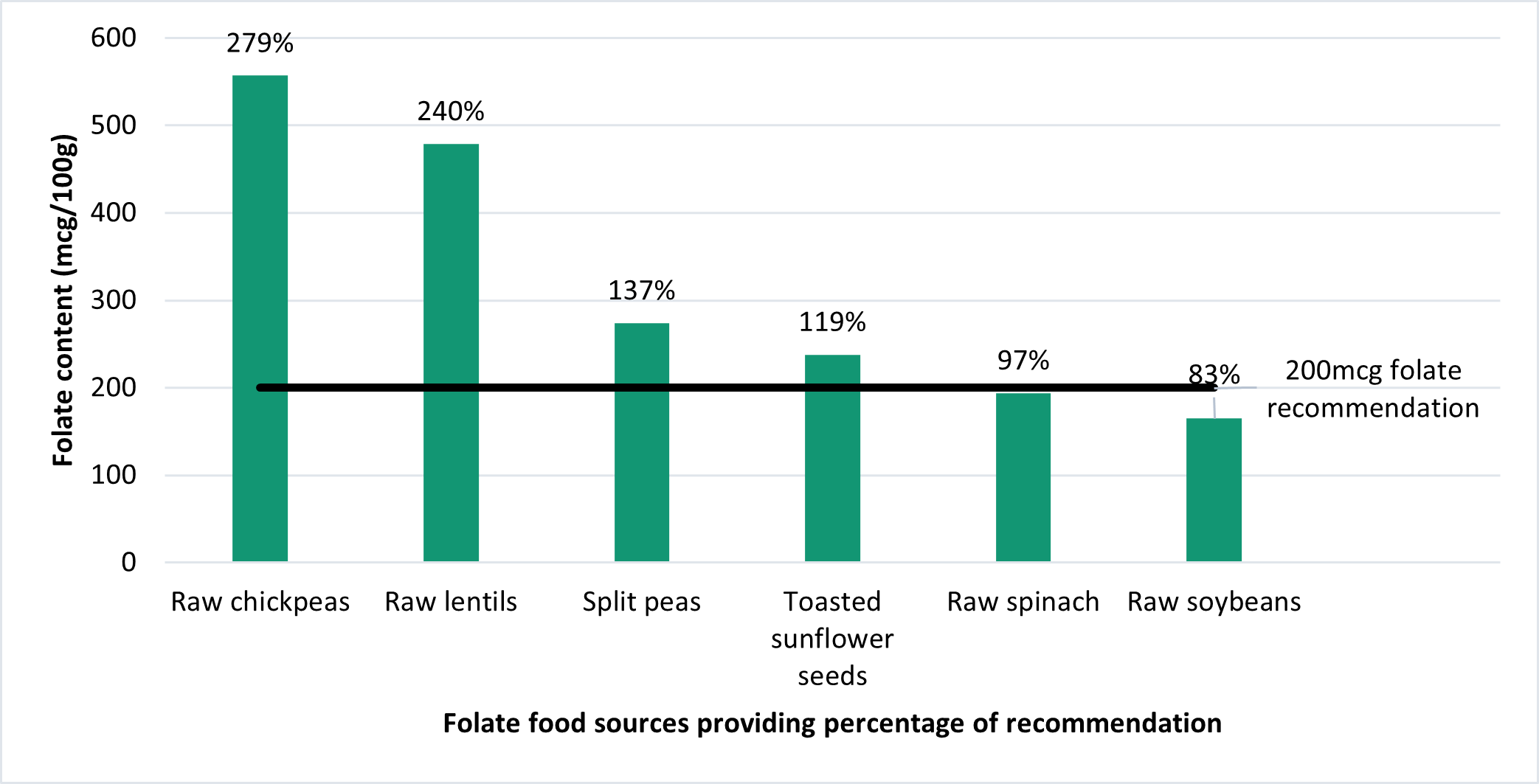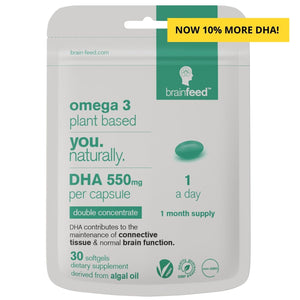Foods for brain health- what in the Mediterranean diet changes your brain?
filter
The foods you eat can physically and chemically change your brain. The type of diet you follow today can determine your brain’s health in old age. A 27-years long study spanning 195 countries found that dietary habits were the biggest risk factor impacting preventable diseases [1 Trusted Source 2019 - The Lancet Systematic and meta-analysis Health effects of dietary risks in 195 countries, 1990–2017: a systematic analysis for the Global Burden of Disease Study 2017 ] . Low intake of whole grains and fruits, and high intake of sodium had the highest impact [1 Trusted Source 2019 - The Lancet Systematic and meta-analysis Health effects of dietary risks in 195 countries, 1990–2017: a systematic analysis for the Global Burden of Disease Study 2017 ] .
A typical western diet is high in sugar, saturated and trans fats and sodium. It is low in fibre and plant-derived vitamins and minerals [2 Trusted Source 2020 - Missouri Medicine Research evaluation Obesity and the Western Diet: How We Got Here ] . This diet is linked to increasing Alzheimer’s risk by increasing inflammation and production of harmful compounds [3 Trusted Source 2021 - Ageing Research Reviews Systematic and meta-analysis Western diet as a trigger of Alzheimer’s disease: From metabolic syndrome and systemic inflammation to neuroinflammation and neurodegeneration ] . A high sugar diet increases Alzheimer’s risk by 20% [4 Trusted Source 2021 - Nutritional Neuroscience Human study Dietary sugar intake and risk of Alzheimer's disease in older women ] and regular intake of processed meat increased its risk by 52% [5 Trusted Source 2021 - The American Journal of Clinical Nutrition Human study Meat consumption and risk of incident dementia: cohort study of 493,888 UK Biobank participants ] .
The good news is diets like the Mediterranean diet and the MIND diet are rich in brain boosting foods that improve memory and protect against brain disorders. Following a Mediterranean diet can lower the risk of Alzheimer’s disease by up to 40% [6 Trusted Source 2022 - Frontiers in Nutrition Systematic and meta-analysis Association between the mediterranean diet and cognitive health among healthy adults: A systematic review and meta-analysis ] and following the MIND diet can lower its risk by 53% [7 Trusted Source 2015 - Alzheimer's & dementia : the journal of the Alzheimer's Association Research evaluation MIND diet associated with reduced incidence of Alzheimer's disease ] .
What foods are good for the brain?
The Mediterranean and MIND diets recommend increasing intake of whole grains, fruits, vegetables, olive oil, nuts, fish, and beans. These are the best brain foods because they are rich in nutrients that promote optimal brain structure and function and protect against damage. Some of these nutrients include DHA, flavonoids, B vitamins like folate and Vitamin B6, and magnesium.
DHA for a resilient brain
Omega-3 fats are a group of healthy fats, one of which is DHA. Your brain is a fatty organ, and 25% of its structure is made of DHA, making it the most important brain fat [8 Trusted Source 2011 - Biochimie Research evaluation Docosahexaenoic acid (DHA) and the developing central nervous system (CNS) - Implications for dietary recommendations ] . DHA directly impacts the resilience of the protective covering of the brain, which determines what can enter and exit the brain [9 Trusted Source 2016 - Annals of Nutrition & Metabolism Research evaluation Docosahexaenoic Acid ] .
- Increasing DHA increases size of the brain areas involved in memory and learning [12 Trusted Source 2013 - Cerebral Cortex Human study Long-Chain Omega-3 Fatty Acids Improve Brain Function and Structure in Older Adults ] . This also led to creation of new brain cells and connections.
- Improvement in connections and quality of the protective layer of the brain leads to better cognition.
- DHA also increases brain compounds that improve processing speed of information [12 Trusted Source 2013 - Cerebral Cortex Human study Long-Chain Omega-3 Fatty Acids Improve Brain Function and Structure in Older Adults ] .
- Since DHA is a structural part of brain cells, it plays a role in reducing inflammation. DHA decreases production of inflammatory compounds at a genetic level and inactivates them. It also contributes to producing compounds that resolve inflammation [13 Trusted Source 2016 - World Journal of Clinical Cases Research evaluation Resolvins and omega three polyunsaturated fatty acids: Clinical implications in inflammatory diseases and cancer ] .
DHA must be taken from the diet to support brain health. The European Food Safety Authority recommends intake of DHA at 500mg/day to meet needs [10 Trusted Source 2012 - EFSA Panel on Dietetic Products, Nutrition and Allergies (NDA) Research evaluation Scientific Opinion on the Tolerable Upper Intake Level of eicosapentaenoic acid (EPA), docosahexaenoic acid (DHA) and docosapentaenoic acid (DPA) ] . Fish is one of the best sources of DHA and it was found that those who consumed 1 portion fish per week had 60% lesser risk of Alzheimer’s [11 Trusted Source 2003 - Archives of Neurology Human study Consumption of Fish and n-3 Fatty Acids and Risk of Incident Alzheimer Disease ] . The following are food sources of DHA:

brain feed has developed a sustainable and plant-based omega 3 supplement that provides you with 500mg of DHA in just one vegan soft-gel capsule. Use code ‘NEW15’ to get 15% off your first purchase.
Flavonoids improve blood flow to the brain
Flavonoids are nutrients found in fruits and vegetables that have shown to provide brain benefits. Recommended intake of flavonoids are yet to be set and current intake in the UK is estimated to be around 180 mg/day [14 Trusted Source 2012 - The Proceedings of the Nutrition Society 3rd-party resource Flavonoids as modulators of memory and learning: molecular interactions resulting in behavioural effects ] . High intake of flavonoids (around 400mg/day) was associated with 40% lower risk of Alzheimer’s and dementia [15 Trusted Source 2020 - The American Journal of Clinical Nutrition Human study Long-term dietary flavonoid intake and risk of Alzheimer disease and related dementias in the Framingham Offspring Cohort ] . Supplementation with 300-400mg anthocyanins (type of flavonoids found in berries) has shown to improve memory and attention [16 Trusted Source 2019 - Current Opinion in Food Science Research evaluation Current evidence on cognitive improvement and neuroprotection promoted by anthocyanins ] . Flavonoid-rich foods like berries, citrus fruits, green tea, and apples are often labelled as foods that improve memory. Flavonoids contribute towards brain health and enhanced memory by:
- Decreasing oxidative stress: Flavonoids can stop damage by trapping and removing compounds that cause oxidative stress and decreasing inflammatory compounds [17 Trusted Source 2020 - Iranian Journal of Basic Medical Sciences Research evaluation Flavonoid-rich foods (FRF): A promising nutraceutical approach against lifespan-shortening diseases ]
- Increasing blood flow: Flavonoids can increase blood flow to the brain by increasing compounds that can dilate blood vessels allowing easier blood flow [18 Trusted Source 2002 - British Journal of Pharmacology Animal study A flavonoid-rich diet increases nitric oxide production in rat aorta ] . It was found that blood flow increased up to 2 hours after flavonoid intake [21 Trusted Source 2009 - Genes & Nutrition 3rd-party resource Flavonoids and brain health: multiple effects underpinned by common mechanisms ] .
- Promoting new connections: Flavonoids increase the density of brain cells involved in memory and protect energy-producing areas. They also prolong the action of brain chemicals involved in learning and attention [19 Trusted Source 2019 - Frontiers in Aging Neuroscience Research evaluation Flavonoids as Prospective Neuroprotectants and Their Therapeutic Propensity in Aging Associated Neurological Disorders ] , [20 Trusted Source 2018 - Biomedicine & Pharmacotherapy 3rd-party resource Flavonoids as acetylcholinesterase inhibitors: Current therapeutic standing and future prospects ]
|
Foods (per 100g) |
Flavonoid content [27 Trusted Source 2014 - USDA 3rd-party source USDA Database for the Flavonoid Content of Selected Foods ] |
% of 400mg dose |
|
Raw elderberries |
518mg |
130% |
|
Unsweetened cocoa powder |
271mg |
68% |
|
Raw parsley |
233mg |
58% |
|
Raw red cabbage |
211mg |
53% |
|
Raw wild blueberries |
150mg |
38% |
|
Raw blackberries |
147mg |
37% |
|
Raw cranberries |
140mg |
35% |
|
Green tea, brewed |
138mg |
35% |
|
Raw kale |
93mg |
23% |
|
Raw eggplant |
86mg |
22% |
|
Raw fennel leaves |
84mg |
21% |
|
Raw broad beans |
67mg |
17% |
B-vitamins for a protected brain
Folate and Vitamin B6 are two B-vitamins that play a major role in normal brain functioning. The brain contains 4 times the amount of folate compared to the blood [22 Trusted Source 2016 - Journal of the Academy of Nutrition and Dietetics Research evaluation B Vitamins and the Brain: Mechanisms, Dose and Efficacy—A Review ] . These vitamins are activators of enzymes (compounds that speed up chemical reactions).
- Due to its involvement at the genetic level, folate is involved in DNA repair, development of brain cells and their protective layers, stability of learning and memory areas of the brain [22 Trusted Source 2016 - Journal of the Academy of Nutrition and Dietetics Research evaluation B Vitamins and the Brain: Mechanisms, Dose and Efficacy—A Review ] .
- As enzyme activators, micro amounts of folate and Vitamin B6 are part of the cycle that produces brain chemicals like serotonin, dopamine, GABA, and melatonin [22 Trusted Source 2016 - Journal of the Academy of Nutrition and Dietetics Research evaluation B Vitamins and the Brain: Mechanisms, Dose and Efficacy—A Review ] .
- Folate and Vitamin B6 convert harmful compounds to healthy compounds in protein metabolism. Lack of B-vitamins will lead to accumulation of the harmful compound. This is connected to many brain disorders, with high levels increasing risk of dementia by 35% [23 Trusted Source 2011 - Alzheimer’s & Dementia Human study Serum homocysteine and dementia: Meta-analysis of eight cohort studies including 8669 participants ] . Folic acid supplementation was associated with 20% reduction in dementia [23 Trusted Source 2011 - Alzheimer’s & Dementia Human study Serum homocysteine and dementia: Meta-analysis of eight cohort studies including 8669 participants ] .
The recommended intake for folate is 200mcg/day. The following foods are the highest sources:

The recommended intake for Vitamin B6 is 1.2mg/day. The following foods are the highest sources:

Magnesium for a calmer brain
Magnesium is an activator of over 300 enzymes in the body [24 Trusted Source 2021 - Nutrients Systematic and meta-analysis Magnesium: Biochemistry, Nutrition, Detection, and Social Impact of Diseases Linked to Its Deficiency ] . Magnesium has the following roles in brain health:
- Magnesium maintains a balance by preventing excitatory brain chemicals from going into overdrive [25 Trusted Source 2018 - Nutrients Systematic and meta-analysis Zinc, Magnesium, Selenium and Depression: A Review of the Evidence, Potential Mechanisms and Implications ] .
- Magnesium is an activator in the conversion of amino acid tryptophan to serotonin [26 Trusted Source 2011 3rd-party source Magnesium and stress ] , which is needed for good mood. 5-htp, an intermediate of this conversion can be directly converted to serotonin.
- It increases the relaxing chemical (GABA). By increasing sleep hormone (melatonin) and relaxing muscles, magnesium promotes better sleep [25 Trusted Source 2018 - Nutrients Systematic and meta-analysis Zinc, Magnesium, Selenium and Depression: A Review of the Evidence, Potential Mechanisms and Implications ] .
- It lowers stress by reducing release of stress hormones. This also protects the memory and learning area of the brain [25 Trusted Source 2018 - Nutrients Systematic and meta-analysis Zinc, Magnesium, Selenium and Depression: A Review of the Evidence, Potential Mechanisms and Implications ] .
- Magnesium promotes growth and development of new brain cells [26 Trusted Source 2011 3rd-party source Magnesium and stress ]
It is found in grains, legumes, and nuts, and those following a Western diet were found to consume less than 30-50% of the recommended intake [24 Trusted Source 2021 - Nutrients Systematic and meta-analysis Magnesium: Biochemistry, Nutrition, Detection, and Social Impact of Diseases Linked to Its Deficiency ] .
The recommended intake is 300mg/day. The following are the highest sources:

References
- Afshin, A. et al. (2019). Health effects of dietary risks in 195 countries, 1990–2017: a systematic analysis for the Global Burden of Disease Study 2017. The Lancet, [online] 393(10184), pp.1958–1972. https://www.thelancet.com/journals/lancet/article/PIIS0140-6736(19)30041-8/fulltext
- Rakhra, V. et al. (2020). Obesity and the Western Diet: How We Got Here. Missouri Medicine, [online] 117(6), pp.536–538. https://www.ncbi.nlm.nih.gov/pmc/articles/PMC7721435/
- Więckowska-Gacek, A. et al. (2021). Western diet as a trigger of Alzheimer’s disease: From metabolic syndrome and systemic inflammation to neuroinflammation and neurodegeneration. Ageing Research Reviews, [online] 70, p.101397. https://www.sciencedirect.com/science/article/pii/S1568163721001446?via%3Dihub
- Liu, L. et al. (2021). Dietary sugar intake and risk of Alzheimer’s disease in older women. Nutritional Neuroscience, [online] pp.1–12. https://www.tandfonline.com/doi/full/10.1080/1028415X.2021.1959099
- Zhang, H. et al. (2021). Meat consumption and risk of incident dementia: cohort study of 493,888 UK Biobank participants. The American Journal of Clinical Nutrition. [online] https://www.sciencedirect.com/science/article/pii/S0002916522003173?via%3Dihub
- Fu, J. et al. (2022) Association between the mediterranean diet and cognitive health among healthy adults: A systematic review and meta-analysis. Frontiers in Nutrition.9:946361. https://www.frontiersin.org/journals/nutrition/articles/10.3389/fnut.2022.946361/full
- Morris, M. C. et al. (2015). MIND diet associated with reduced incidence of Alzheimer's disease. Alzheimer's & dementia : the journal of the Alzheimer's Association, 11(9), 1007–1014. https://alz-journals.onlinelibrary.wiley.com/doi/10.1016/j.jalz.2014.11.009
- Guesnet, P. et al. (2011). Docosahexaenoic acid (DHA) and the developing central nervous system (CNS) - Implications for dietary recommendations. Biochimie, [online] 93(1), pp.7–12. https://www.sciencedirect.com/science/article/abs/pii/S0300908410001823?via%3Dihub
- Calder, P.C. (2016). Docosahexaenoic Acid. Annals of Nutrition and Metabolism, 69(1), pp.8–21. https://karger.com/anm/article/69/Suppl.%201/8/42341/Docosahexaenoic-Acid
- European Food Safety Authority. (2012). Scientific Opinion on the Tolerable Upper Intake Level of eicosapentaenoic acid (EPA), docosahexaenoic acid (DHA) and docosapentaenoic acid (DPA). [online] https://efsa.onlinelibrary.wiley.com/doi/abs/10.2903/j.efsa.2012.2815
- Morris, M.C. et al. (2003). Consumption of Fish and n-3 Fatty Acids and Risk of Incident Alzheimer Disease. Archives of Neurology, [online] 60(7), p.94 https://jamanetwork.com/journals/jamaneurology/fullarticle/784412
- Witte, A.V. et al. (2013). Long-Chain Omega-3 Fatty Acids Improve Brain Function and Structure in Older Adults. Cerebral Cortex, 24(11), pp.3059–3068. https://academic.oup.com/cercor/article-abstract/24/11/3059/304487?redirectedFrom=fulltext
- Moro, K. et al. (2016). Resolvins and omega three polyunsaturated fatty acids: Clinical implications in inflammatory diseases and cancer. World Journal of Clinical Cases, [online] 4(7), p.155. https://www.wjgnet.com/2307-8960/full/v4/i7/155.htm
- Rendeiro, C. et al. (2012). Flavonoids as modulators of memory and learning: molecular interactions resulting in behavioural effects. The Proceedings of the Nutrition Society, [online] 71(2), pp.246–262. https://www.cambridge.org/core/journals/proceedings-of-the-nutrition-society/article/flavonoids-as-modulators-of-memory-and-learning-molecular-interactions-resulting-in-behavioural-effects/3B0CC3B96E615515CF374E7C30627CF8
- Shishtar, E. et al. (2020). Long-term dietary flavonoid intake and risk of Alzheimer disease and related dementias in the Framingham Offspring Cohort. The American Journal of Clinical Nutrition, [online] 112(2), pp.343–353. https://www.sciencedirect.com/science/article/pii/S0002916522008048?via%3Dihub
- Medina dos Santos, N. et al. (2019). Current evidence on cognitive improvement and neuroprotection promoted by anthocyanins. Current Opinion in Food Science, [online] 26, pp.71–78. https://www.sciencedirect.com/science/article/abs/pii/S2214799319300013?via%3Dihub
- Waheed Janabi, A. H. et al. (2020). Flavonoid-rich foods (FRF): A promising nutraceutical approach against lifespan-shortening diseases. Iranian Journal of Basic Medical Sciences, [online] 23(2), pp.140–153. https://ijbms.mums.ac.ir/article_14327.html
- Benito, S. et al. (2002). A flavonoid-rich diet increases nitric oxide production in rat aorta. British Journal of Pharmacology, 135(4), pp.910–916. https://bpspubs.onlinelibrary.wiley.com/doi/10.1038/sj.bjp.0704534
- Ayaz, M. et al. (2019). Flavonoids as Prospective Neuroprotectants and Their Therapeutic Propensity in Aging Associated Neurological Disorders. Frontiers in Aging Neuroscience, 11. https://www.frontiersin.org/journals/aging-neuroscience/articles/10.3389/fnagi.2019.00155/full
- Khan, H. et al. (2018). Flavonoids as acetylcholinesterase inhibitors: Current therapeutic standing and future prospects. Biomedicine & Pharmacotherapy, 101, pp.860–870. https://www.sciencedirect.com/science/article/abs/pii/S0753332217356998?via%3Dihub
- Spencer, J.P.E. (2009). Flavonoids and brain health: multiple effects underpinned by common mechanisms. Genes & Nutrition, [online] 4(4), pp.243–250. https://link.springer.com/article/10.1007/s12263-009-0136-3
- Kennedy, D. (2016). B Vitamins and the Brain: Mechanisms, Dose and Efficacy—A Review. Nutrients, [online] 8(2), p.68. https://www.mdpi.com/2072-6643/8/2/68
- Wald, D.S. et al. (2011). Serum homocysteine and dementia: Meta-analysis of eight cohort studies including 8669 participants. Alzheimer’s & Dementia, 7(4), pp.412–417. https://alz-journals.onlinelibrary.wiley.com/doi/10.1016/j.jalz.2010.08.234
- Fiorentini, D. et al. (2021). Magnesium: Biochemistry, Nutrition, Detection, and Social Impact of Diseases Linked to Its Deficiency. Nutrients, 13(4), p.1136. https://www.mdpi.com/2072-6643/13/4/1136
- Wang, J. et al. (2018). Zinc, Magnesium, Selenium and Depression: A Review of the Evidence, Potential Mechanisms and Implications. Nutrients, [online] 10(5). https://www.mdpi.com/2072-6643/10/5/584
- Cuciureanu, M.D. and Vink, R. (2011). Magnesium and stress. [online] https://www.ncbi.nlm.nih.gov/books/NBK507250/
- Bhagwat, S. et al. (2014). USDA Database for the Flavonoid Content of Selected Foods. [online] https://agdatacommons.nal.usda.gov/articles/dataset/USDA_Database_for_the_Flavonoid_Content_of_Selected_Foods_Release_3_1_May_2014_/24659802


 alertness
alertness
 cognition
cognition
 sleep
sleep
 wellbeing
wellbeing




Leave a comment
Open tab